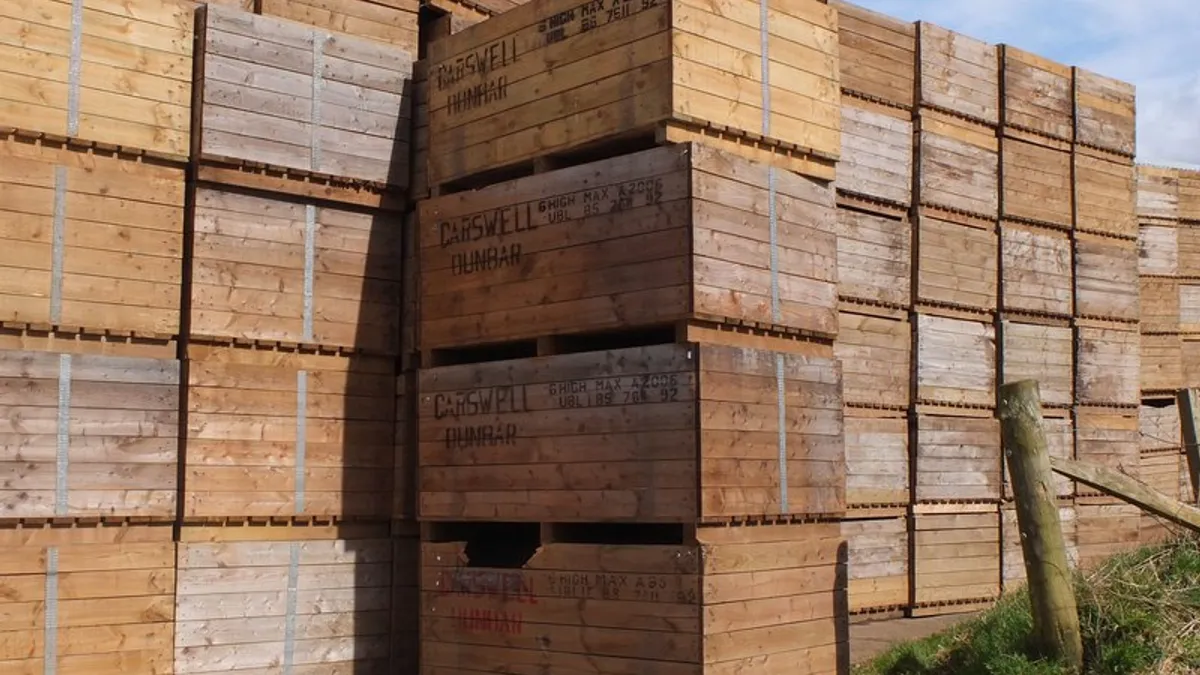Dive Brief:
- British retail leaders are calling on Brexit negotiators to "avoid the cliff edge" and reach a deal that protects "fragile" supply chains and the free flow of goods between the U.K. and European Union.
- Food supply chains are particularly at risk if a deal isn't reached, as new border controls and regulatory checks could create delays and "food rotting at ports," the British Retail Consortium (BRC) wrote in a letter to U.K. Prime Minister Theresa May and Chief Brexit Negotiator Michael Barnier.
- The BRC estimates 12,500 small businesses will face a high risk of folding if negotiators don't reach a deal.
Dive Insight:
Perishable goods are particularly at risk when supply chains are delayed, and U.K. and EU food producers are on edge as the clock ticks down toward March 29, 2019 — the planned date of Brexit.
Earlier this year, food suppliers and manufacturers signed onto a manifesto advocating for frictionless trade and innovation-focused regulation.
Under current trade agreements, food products can move quickly between the European mainland and the U.K. For example, the BRC said, salad greens can go from trucks in Spain on Monday to U.K. stores by Thursday, still with five days' shelf life.
"These well-established, just in time, supply chains are vital for ... protecting the livelihoods of tens of thousands of farmers and food producers in the EU," the BRC wrote in its letter.
If enhanced border controls and regulatory checks are implemented between the nations, however, delays and even failed deliveries could result.
Negotiations may be even more uncertain after the resignations of two key U.K. government leaders. U.K. Foreign Secretary Boris Johnson resigned Monday, after he strongly criticized May's Brexit plans.
Johnson's resignation came just hours after David Davis, the U.K.'s Brexit secretary, said he would resign, citing differences between his own beliefs and those of Prime Minister May. "The national interest requires a Secretary of State in my Department that is an enthusiastic believer in your approach, and not merely a reluctant conscript," Davis wrote in his resignation letter.
U.K. Labour Party Leader Jeremy Corbyn said Davis' resignation signals May "is incapable of delivering Brexit."
David Davis resigning at such a crucial time shows @Theresa_May has no authority left and is incapable of delivering Brexit.
— Jeremy Corbyn (@jeremycorbyn) July 8, 2018
With her Government in chaos, if she clings on, it's clear she's more interested in hanging on for her own sake than serving the people of our country.
With negotiations in flux, many U.K. and EU businesses have taken matters into their own hands. Several European companies are planning to relocate parts of their supply chain out of the U.K. About one-third of U.K. businesses with EU suppliers plan to replace them with British vendors.
Still, the drastic supply chain shifts won't be easy for companies, and the ultimate outcome of Brexit negotiations could be a make or break moment for small businesses.














